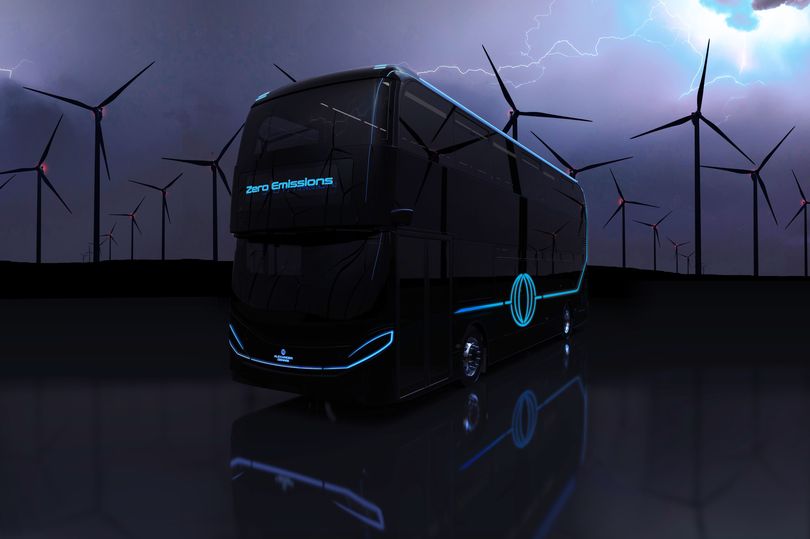Designed and fully built in Britain, ADL’s next generation hydrogen double decker – which is being developed under the project name H2.0 and expected to be on the road before the end of the year – supports the development of skills in the growing clean vehicle technology sector and boosts the UK hydrogen economy, while delivering Governments’ net zero targets through the carbon-neutral electrification of high-mileage bus routes.
H2.0 is ADL’s second-generation hydrogen platform, incorporating learnings from nationwide trials to set new standards for range and efficiency. It builds on more than 25 years of hydrogen experience of New Flyer, another NFI Group subsidiary and one of the global pioneers in hydrogen buses.
With hydrogen tanks and key components intelligently packaged by the engineers that developed the market’s widest range of clean buses, ADL’s next generation hydrogen bus is an integral vehicle design that perfectly balances weight and maximises saloon space.
Powered by a class-leading Ballard fuel cell power module, it continues ADL’s philosophy of working with only the best in their field. Specified to just the right power output, the fuel cells minimise fuel consumption and maximise performance for lowest total cost of ownership. With fewer higher volume tanks, H2.0 reduces maintenance effort while increasing fuel capacity to deliver increased zero emission range.
H2.0 uses the latest technology in the form of the Voith Electrical Drive System. This boosts energy regeneration during the braking phase and delivers increased efficiency that is further enhanced by advanced thermal management which uses excess heat from the fuel cells and driveline to heat the saloon, minimising additional power requirement.
ADL President & Managing Director, Paul Davies commented on the development saying: “H2.0 is going to be a milestone for zero emission technology with unrivalled efficiency that gives a class-leading range, perfect for high mileage routes that battery technology doesn’t cover. Designed and built in Britain, our next generation hydrogen bus will retain investment in our economy and boost skills in clean vehicle technology, a crucial sector for future development as the United Kingdom targets net zero by 2050.”



